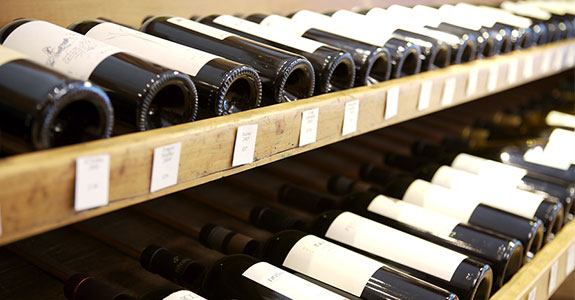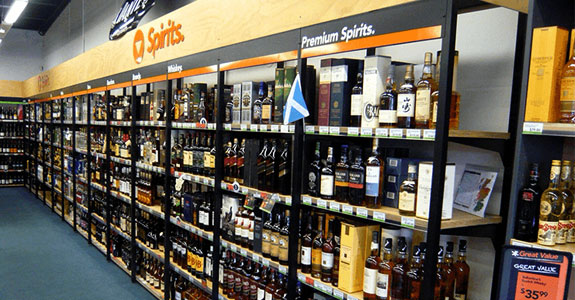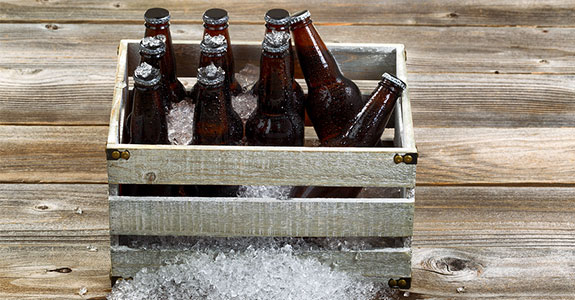Start your business today
Getting business licenses is about as much fun as having a root canal treatment at the dentist, but is has to be done and done correctly. One of the most common mistakes that Entrepreneurs make is not getting all the necessary licences and permits right in the beginning.
In South Africa anyone wishing to sell or distribute liquor is required by law to have a liquor licence. If liquor is sold without a licence it is considered as breaking the law and the police can close down a business and confiscate its assets.
Making an application and paying the required fees doesn’t necessarily mean that a licence is automatically granted.
The liquor act and its regulations are complex and applicants should seek professional advice in order to gain a successful result with regard to the application of a liquor licence.
Content in this guide
- Responsibility
- By-Laws
- Zoning
- National Register of Liquor Licences
- The law
- Trading licence
- Alternatives
- Running the Store
- Suppliers List
- Security
Responsibility

Social responsibility has become an important issue which has to be considered by new applicants.
This means that there has to be serious commitment to black economic empowerment and a positive contribution has to be made in order to combat alcohol abuse.
New licence holders will have to show how they intend to restrict or promote job creation, provide diversity of ownership, promote exports and deal with competition.
By-Laws
Apart from the requirement of a valid liquor licence to legally sell liquor in Johannesburg, there is legislation and municipal by-laws with which a business owner or manager must comply in order to operate legally.
These differ from municipal area to municipal area. Failure to comply can and will result in fines, prosecution and/or the forced closure of the business.
Zoning

Liquor outlets can ONLY be run legally from a property if it is zoned for the type of liquor outlet being applied for.
Zoning and consent information is not given over the phone. It can be obtained from the local municipality.
National Register of Liquor Licences
A National Register of Liquor Licences is operated by the DTI which lists the name, address, activities permitted, and conditions attached to any liquor licence that is issued in South Africa.
As well as being published on the Dti website, the register can be viewed and copies made on request, but a fee is payable for this information.
Those who cannot apply for a liquor licence are:
- Minors
- Un-rehabilitated insolvents
- Persons committed in terms of the Mental Health Act, 1973;
- Persons who have contravened this Act or provincial liquor laws to the extent provided for in the Act.
The law

Liquor licence holders are governed by the Liquor Act, 27 of 1989 (Act) and the Liquor Act (59 of 2003) which states that the holder of a licence who keeps licensed premises open for the sale, supply or consumption of liquor, or sells or supplies any liquor at a time when the sale of liquor is not permitted by the licence shall be guilty of an offence.
The Act provides for the manufacturing and distribution of liquor to be regulated at national level, while micro manufacturing and retailing continue to be regulated at provincial level.
This determines where and how an application for a liquor licence is made.
Time frame during the application procedure:
On the first Friday of the month:
- The completed application must be delivered to the Magistrate in the district where the premises to be licensed are situated.
- Two weeks before the application is forwarded to the Magistrate:
- A notice of intention must be sent to the Government Printers in Pretoria for publication in the Government Gazette.
- This notice in the Government Gazette is the only notice of the application provided to the public.
- The police (DPO) for the district will lodge a report with the Magistrate.
- The public has 42 days in which to reply, in writing, to the police report and any objections.
- If there were no objections received and the police report has been received, the application can be forwarded to the secretary of the Liquor Board.
- The Liquor Board will consider each application in terms of the applicant, the premises and the public interest.
Fees: Less than R5 million turnover
- Application: R500
- Initial Registration: R2000
- Notice to Review: R500
- Annual renewal of registration: R2000
- Transfer fee: R1500
- Request for variation of conditions: R1500
- Notice of change in location or activities: R1500
- Appointment of person to conduct activities: R1500
Trading licence

Certain businesses in South Africa such as a retail liquor store require a trading licence. Trading without a valid licence is punishable with a fine of up to R2 000.
How to apply for a trading licence
Steps to follow when making application:
- Download theapplication form (RPI)here for the City of Johannesburg or collect one from your nearest municipal office
- Pay the Application/License fee.
These documents must be attached to application form (RPI):
- In case of a company, close corporation or partnership a copy of the company certificate and list of directors is required
- Copy of menu
- Copy of 10 documents of directors, partners and copy of 10 of person in charge are required
- Copy of liquor licence
- Copy of SARS tax certificate
- Copy of approved building layout plan
- Zoning certificate.
When an application is made and the application form is complete with copies of all relevant documents which are attached to the application, a receipt will be issued in regard of fees and application received.
The next steps are:
- Request for reports will be drafted and forwarded to relevant departments
- In the case of requirements have been set by a department; the applicant
- must comply with the requirements and then arrange a re-inspection with
- The officer or department concerned.
- Only when all departments have retuned favourable reports and recommend approval the trade license will be issued.
- If the applicant trades while waiting for a trading licence to be approved, the applicant is doing this at his or her own risk.
Note: The licence fees quoted above are those that apply in the Johannesburg municipal area. The fees change from area to area and the requirements may also change depending on the by-laws of the area that you’re applying in.
Alternatives to Starting Your Own Liquor Shop

Buying into a franchised system or buying an established business will assist you in getting your venture off the ground much faster that starting your own business from scratch.
Franchises
Franchises are safer but more expensive. One of the perks of buying a franchise is that the franchisor supplies liquor to the store as well as designing and decorating the shop.
As a franchisee you receive ongoing training and franchisor support. Another huge advantage is that you have access to group marketing and strong purchasing power through the franchisor.
Buying an existing liquor store
Existing businesses can be a lot cheaper to get started.
You must find out why the business is for sale and it’s very important to ask for copies of the financial statements for the last three years.
Take them to an accountant for an opinion on the performance of the business to date. Check whether or not there are any new developments planned in the area. You don’t want to pay a lot of money for a business only to find out that a new centre is going to be built next door featuring a huge discount liquor store.
Always ask what the owner is planning to do after he sells the business and if he or she is planning to open another liquor store.
Running the Store

Fitting the shop
Besides a “point of sale” counter, you will need free-standing units to display wine and spirits. Depending upon the size of your shop, you could also have displays in the middle of the store.
You can achieve this either with modular shelving units or display units which can be bought new or second-hand. If you are good with your hands, you could buy attractive DIY units which you can assemble yourself.
Suppliers and distributors will from time to time supply promotional material which can be used to advertise products and add to the liquor store ambiance.
Signage
You will also need signage – the name of the business must be placed strategically outside the shop front.
Inside the store you will need a cash register, telephone and computer to run various programmes to control stock and to run all the necessary accounting practices that a business needs to keep track of what goes in and out and who you owe money to etc.
Creating Your Own Suppliers List

SAB
The next step is to get a list of suppliers for your liquor and soft drinks. In order to buy directly from wholesalers you will have to contact them directly and negotiable the best deal possible. For beer and cider South Africa’s biggest supplier is South African Breweries Ltd (SAB).
You have to apply to one of their depots in your area and complete a credit application. On approval they will be able to supply you with fridges to keep drinks cool. But each depot has its own set of requirements.
To find the nearest SAB depot visit the SAB website and contact them for details.
ABI
Amalgamated Beverage Industries (ABI) is the soft drink division of South African Breweries (SAB). ABI supplies products from Coke and mixers to energy drinks, but do not deliver unless an order 20 cases or more at a time. They also supply fridges.
In order to buy from them you will have to supply the following:
- A copy of your ID document
- A copy of a cancelled cheque or bank details
- Copy of your CK document
- Vat registration number
- If you are renting premises they require a letter from the landlord.
Wine & Spirit Suppliers
Distributors supply liquor stores, restaurants, night clubs and pubs.
You need to investigate distributors to find out whom would be best suited to your needs and if they are able to supply to the area that the business is located in.
The web is a useful source of South Africa’s distributors and wholesalers.
Here are some useful sites:
Local products
If you are considering stocking local wines you can buy directly from wine estates. Contact wineries either through the internet or by visiting estates to select brands you know will sell. Pay attention to price and types of wines that you think your clients will enjoy.
Choose the furnishings, and racks that meet your budget. You can always upgrade later after sales pick up. If you decide to stock wine, this product lends itself well to easy and fun marketing events.
The store will be able to host tasting events and wine appreciation classes. If these events are free they will draw customers, and in this way you will be able to grow your customer base.
Security
You need to consider carefully how you are going to protect your investment. Installing high-tech equipment and having security personnel in the store are options you can make use of.








